So, by now, you know about impeachment theater taking over the Hill. President Trump made a phone call to Ukraine’s political leadership and apparently that was the final straw for House Democrats. They’ve started formal impeachment proceedings, their end goal since 2016. Trump reportedly shook down Ukrainian President Volodymyr Zelensky, threatening to withhold aid unless the government started a corruption probe into Hunter Biden, who was sitting on the board of an energy company despite zero experience in this sector. The White House released the transcript of the call. There was no shakedown. There was no quid pro quo. This all stems from a whistleblower complaint, whose identity is said to be that of a CIA agent.
Democrats started to get the ball rolling when the whistleblower complaint wasn’t even released yet. It’s second-hand sourced, the whistleblower wasn’t even in on the call, which is why it’s loaded with errors. Gossip and hearsay are now acceptable for these reports that set off this liberal media frenzy. And the intelligence community secretly changed the standards for these reports, removing the “first-hand knowledge of the alleged wrongdoing” standard (via The Federalist) [italicized text indicates ICIG statement]:
The Intelligence Community Inspector General released a statement admitting the office changed its forms for whistleblowers between May 2018 and August 2019, as The Federalist first reported. As The Federalist’s Sean Davis noted, “The new complaint document no longer requires potential whistleblowers who wish to have their concerns expedited to Congress to have direct, first-hand knowledge of the alleged wrongdoing that they are reporting.”
The timing of the change is important, as it bookends the period when an anonymous person filed a whistleblower complaint against President Donald Trump for a phone call with the president of Ukraine. In the call, the president asked the Ukrainians to continue investigating political corruption that may implicate Joe Biden and his son, Hunter Biden.
In a statement on processing whistleblower complaints, the IG admitted they changed the forms:
In June 2019, the newly hired Director for the Center for Protected Disclosures entered on duty. Thus, the Center for Protected Disclosures has been reviewing the forms provided to whistleblowers who wish to report information with respect to an urgent concern to the congressional intelligence committees. In the process of reviewing and clarifying those forms, and in response to recent press inquiries regarding the instant whistleblower complaint, the ICIG understood that certain language in those forms and, more specifically, the informational materials accompanying the forms, could be read – incorrectly – as suggesting that whistleblowers must possess first-hand information in order to file an urgent concern complaint with the congressional intelligence committees.
The ICIG’s Center for Protected Disclosures has developed three new forms entitled, ‘Report of Fraud, Waste, and Abuse UNCLASSIFIED Intake Form’; ‘Disclosure of Urgent Concern Form-UNCLASSIFIED’; and ‘External Review Panel (ERP) Request Form – UNCLASSIFIED.’ These three new forms are now available on the ICIG’s open website and are in the process of being added to the ICIG’s classified system. The ICIG will continue to update and clarify its forms and its websites to ensure its guidance to whistleblowers is clear and strictly complies with statutory requirements. Consistent with the law, the new forms do not require whistleblowers to possess first-hand information in order to file a complaint or information with respect to an urgent concern”
Recommended
The publication added that first-hand accounts are not required by law with such reports, but the ICIG must possess first-hand information in order to classify the complaint as credible.
Now, the ICIG, Michael Atkinson, is set to appear before Congress in a closed-door session, but The Washington Examiner’s Byron York went on a lengthy Twitter thread to offer a timeline of events. It’s sort of a cluster, and did the whistleblower commit perjury with the claim? He or she checked that they had first-hand knowledge. That's obviously not true.
The Intelligence Community Inspector General's explanation of its whistleblower form is a confusing, ass-covering mess. 1/12 https://t.co/hDem5G05DA
— Byron York (@ByronYork) October 1, 2019
ICIG says Trump-Russia whistleblower complaint was 'processed and reviewed...in accordance with the law.' Fine. Issue addressed in ICIG explanation is what policy on first- versus second-hand information was at the time. 2/12
— Byron York (@ByronYork) October 1, 2019
ICIG says it gave whistleblower a procedures form saying in order to find urgent concern 'credible,' complainant must have 'reliable, first-hand information.' Without that, ICIG 'will not be able to process the complaint.' 3/12
— Byron York (@ByronYork) October 1, 2019
But ICIG then notes 'there is no [first-hand information] requirement set forth in the statute.' Further: 'In fact, by law the complainant...need not possess first-hand information' in order to file complaint. 4/12
— Byron York (@ByronYork) October 1, 2019
That means ICIG procedures form, the one handed to whistleblower, was wrong on question of first- versus second-hand information. 5/12
— Byron York (@ByronYork) October 1, 2019
What gives? ICIG says procedures form was in effect since 5/24/18, before ICIG Atkinson took office 5/29/18. Translation: Don't look at me -- it was before my time! 6/12
— Byron York (@ByronYork) October 1, 2019
ICIG also notes whistleblower claimed he had both second-hand *and* first-hand information. So ICIG did *not* find that whistleblower could 'provide nothing more than second-hand or unsubstantiated assertions.' 7/12
— Byron York (@ByronYork) October 1, 2019
Not clear what first-hand information in whistleblower complaint is. Key accusations concerning Trump-Zelensky call and alleged WH coverup afterward are entirely second-hand. 8/12
— Byron York (@ByronYork) October 1, 2019
So what about procedures form? ICIG says new person was hired to run Center for Protected Disclosures, was working on updating forms. Then Trump-Ukraine brouhaha erupted, and ICIG saw something was amiss... 9/12
— Byron York (@ByronYork) October 1, 2019
ICIG says amid controversy, he 'understood that certain language in those forms...could be read--incorrectly--as suggesting that whistleblowers must possess first-hand information.' Of course, that's exactly what the form said. 10/12
— Byron York (@ByronYork) October 1, 2019
So ICIG's office developed new forms. 'Consistent with the law, the new forms do not require whistleblowers to possess first-hand information,' ICIG says. And that looked like after-the-fact justification of whistleblower handling. 11/12
— Byron York (@ByronYork) October 1, 2019
In summary, ICIG seems be saying: Whistleblower was given form with incorrect information. Not my fault! Then, after Trump-Ukraine exploded, we changed form to match law. Yes, looked fishy, but all OK. 12/12 End.
— Byron York (@ByronYork) October 1, 2019
Federalist co-founder Sean Davis, who has been writing about this story since last week, has many questions and the more you look at it--the more you see this is a total sham:
On Monday, the intelligence community inspector general (ICIG) admitted that it did alter its forms and policies governing whistleblower complaints, and that it did so in response to the anti-Trump complaint filed on Aug. 12, 2019. The Federalist first reported the sudden changes last Friday. While many in the media falsely claimed the ICIG’s stunning admission debunked The Federalist’s report, the admission from the ICIG completely affirmed the reporting on the secretive change to whistleblower rules following the filing of an anti-Trump complaint in August.
[…]
The ICIG did not inform the DNI of the existence of the anti-Trump complaint until Aug. 26 and did not inform Congress of the complaint until Sept. 9. On Sept. 13, the DNI informed Rep. Adam Schiff, D-Calif., who chairs the House Intelligence Committee, that the complaint did not meet the statutory definition of an “urgent concern” and would therefore not be shared with Congress. The complaint was formally declassified by the president for release to the public on Sept. 25.
This timeline raises significant questions about the rationale for the rule changes by the ICIG, as it would be improbable, except in the case of illegal classified leaks, for the press to have inquired about the anti-Trump complaint in August, when the revisions to the forms and policies were claimed to have been formally made, according to markings on the new whistleblower forms which claim they were revised in August of 2019. While the previous forms requiring firsthand evidence show they were approved on May 24, 2018, the new forms do not disclose the specific date of the revision. If the ICIG did not inform the congressional committees of the particular whistleblower complaint until Sept. 9 and did not transmit the letter until Sept. 13, how could any members of the media have inquired back in August about the specific anti-Trump complaint or its relation to the previous requirement for firsthand information in whistleblower complaints?
The ICIG in its press release also failed to disclose when precisely its whistleblower forms and rules were changed, despite top lawmakers on oversight committees in both chambers specifically requesting that information. The specific date of the changes to internal evidentiary requirements is essential to determining whether the ICIG changed its own policies and procedures to justify forwarding to Congress a complaint that under the previous standard may not have been deemed credible.
[…]
The anti-Trump complaint that was released last week, which congressional Democrats are using as the basis for impeachment proceedings against the president, is riddled not with evidence directly viewed by the complainant, but repeated references to what anonymous officials allegedly told the complainant: “I have received information from multiple U.S. Government officials,” “officials have informed me,” “officials with direct knowledge of the call informed me,” “the White House officials who told me this information,” “I was told by White House officials,” “the officials I spoke with,” “I was told that a State Department official,” “I learned from multiple U.S. officials,” “One White House official described this act,” “Based on multiple readouts of these meetings recounted to me,” “I also learned from multiple U.S. officials,” “The U.S. officials characterized this meeting,” “multiple U.S. officials told me,” “I learned from U.S. officials,” “I also learned from a U.S. official,” “several U.S. officials told me,” “I heard from multiple U.S. officials,” and “multiple U.S. officials told me.”
In fact, the ICIG admitted in its Aug. 26 letter to the DNI that its office never even reviewed the transcript of Trump’s phone call with Zelensky prior to determining whether the complainants hearsay allegations about the phone call were credible.
This is even more pathetic than the Russian collusion myth—and it shouldn’t shock us that the Ukraine connection is the glue that binds this whole freak show act together.

















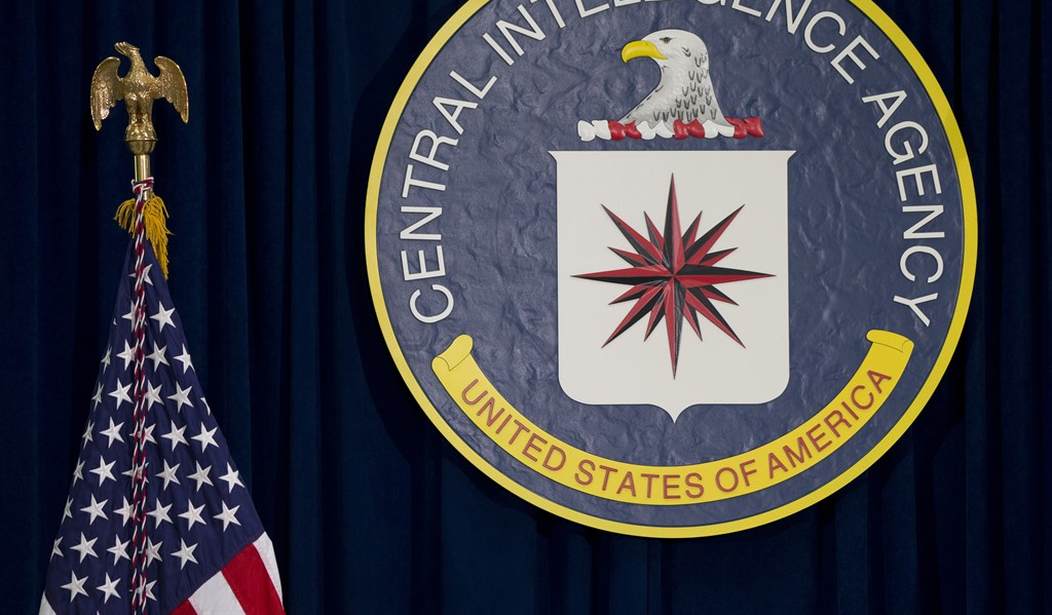
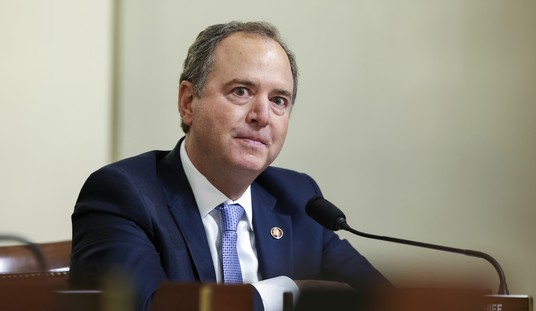
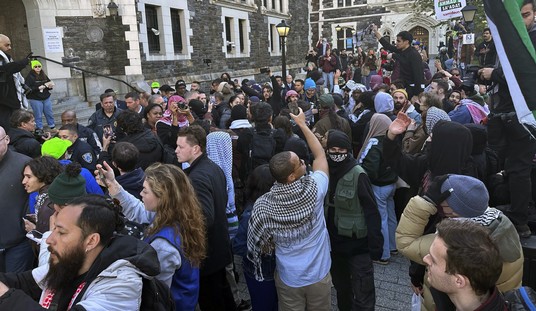
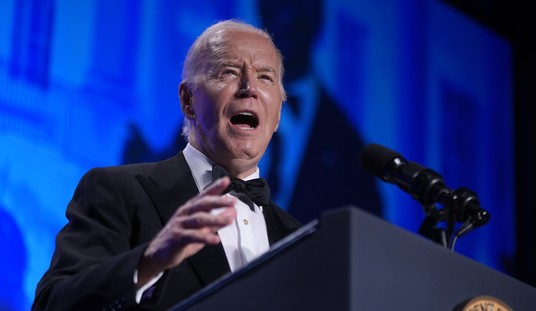
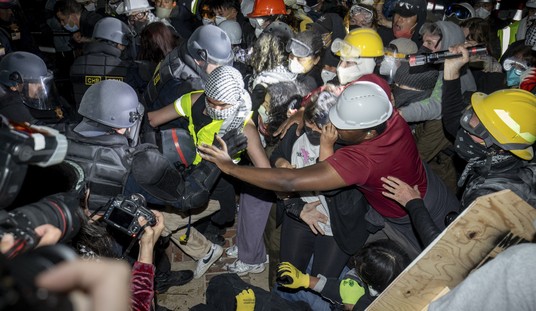
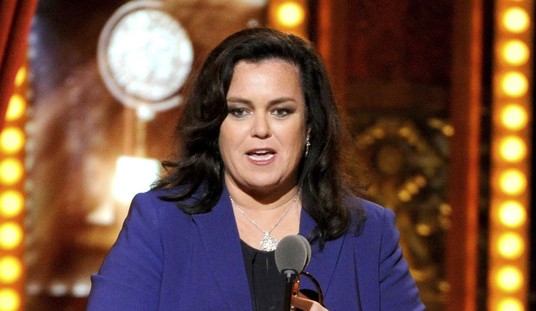

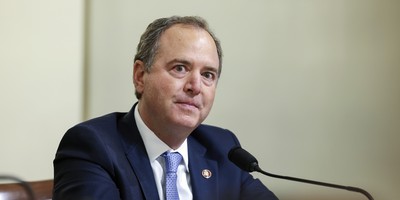
Join the conversation as a VIP Member